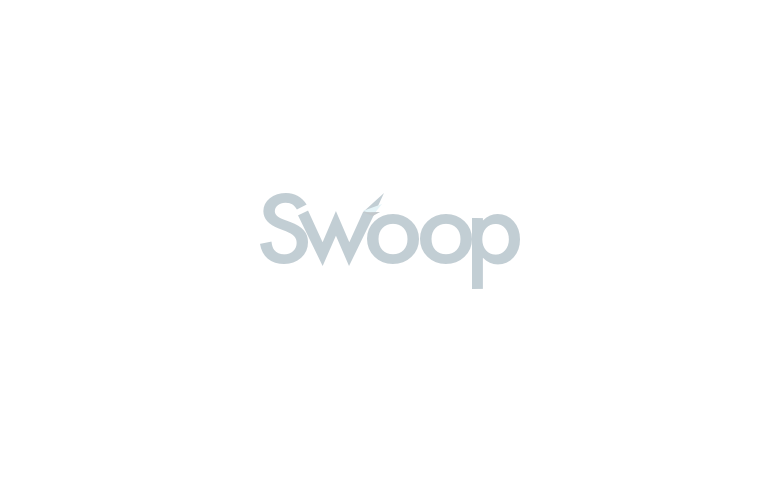TABLE OF CONTENTS
Provide us with your details and one of our insurance experts will contact you to discuss your requirements







Page written by Chris Godfrey. Last reviewed on May 22, 2025. Next review due April 1, 2027.

Accidents that cause personal injury or damage to the property of the general public or your clients, customers, and suppliers as a result of the services your organisation provides, could have a huge financial impact on your business, or even close your business down. However, public liability insurance is designed to protect against this sort of risk – providing compensation to claimants in the event of any mishap and giving business owners peace of mind.
Public liability insurance is a type of business insurance that protects your organisation if someone is injured, or their property is damaged because of the services that you or your business provides. This type of cover, also known as PL or Liability Insurance, is designed to protect your company against third-party claims for injuries or property damage from a customer or client, passer-by, or a visitor to your business premises – whether you’re at fault or not.
Read more: our detailed guide on what public liability insurance actually is.
Public liability insurance is a good idea for almost all businesses, (including sole traders and the self-employed), and especially those that interact with the general public and work for local councils or central government. Some personal injury or property damage claims can run into the hundreds of thousands of pounds. If your business operations put your organisation in a position where a customer, client, supplier or a passing member of the public (even in or on a vehicle) could suffer injury or damage to their personal property, then you need PL to protect your business against the potential of crippling financial claims. Additionally, some customers may demand that you have public liability insurance before contracting with your company.
Businesses that typically require PL to operate safely include:
No, public liability insurance is not a legal requirement, but the potential losses from not having it can far outweigh any premium savings you may obtain.
Public liability insurance is a defence against claims resulting from accidental personal injury or property damage incurred by third parties in the provision of the services your business provides. The PL claims process involves:
In the event that a third party makes a financial claim against your business for personal injury or property damage, you should immediately notify your insurer, providing the following information:
After receiving your information, your insurer will investigate the claim and if it has merit, calculate a settlement amount to include in an initial offer of compensation. The claimant may accept this offer or make a counter-offer, resulting in settlement by mutual negotiation. Either way, you will not be responsible for paying the final compensation amount beyond any excess that you have agreed to pay.
Most public liability insurance policies will ask you to pay an agreed portion of any claim – typically $500 or $1000, but possibly more. This is called the ‘excess’ sum. Generally, the higher the excess you agree to pay, the lower your premium costs will be.
The amount of public liability insurance you need depends on the industry you work in, (is it high risk), and the size of your contracts or sales. In most cases, the bigger your sales are, the higher potential claims may be. (Keep in mind that a claim for personal injury or property damage will usually be increased by added legal fees and other clerical costs). If you work with government departments or local councils, you should consider a policy of up to $5million, although minimum cover levels typically start at around $1million, which is more suitable for small businesses, sole traders, and organisations that have less contact with the public.
The cost of public liability insurance is determined by the type of industry you work in, and the risks associated with the services you deliver. Higher risk means higher cost. Businesses that provide labour services, such as plumbers, electricians, and carers, will usually have more risk than organisations that provide online or clerical services. This difference will be reflected in the cost of the policy.
Public liability insurance protects your business from financial loss if someone is injured, or their property is damaged because of the work that you or your business provides.
Accidents, errors and omissions can happen at any time and their impact could bring crippling costs to your business, or even cause you to cease trading. To eliminate this kind of worry, businesses will typically take out a range of insurance protections, including:
Professional indemnity insurance, also known as professional liability insurance, is an essential type of cover for businesses that advise clients, help them navigate complex financial or legal affairs, or provide them with vital information that is published in the media. In these kind of cases, errors can cost thousands or even millions in legal compensation claims. Professional indemnity (PI) can protect you if a client makes a financial loss because of your work and then makes claim against your business. Trade associations, government bodies, public institutions, and major customers will often require proof of a minimum level of PI insurance before doing business with you.
Employers’ liability insurance (ELI) is a legal requirement for most US employers. ELI protects you and your employees, (including those who no longer work for you), should they be injured or become unwell as a result of working for your business. ELI typically covers the associated legal and compensation costs, and other damages of such events, but it can also cover accidental injury or damages caused by an employee to a third party, like your customers.
Business contents insurance is designed to replace the contents of shops, offices, surgeries, garages, workshops and almost every other type of business in the event of fire, flood, theft, and accident. Contents insurance can replace lost cash, and pay for new fixtures and fittings, equipment, stock and samples, raw materials, and employees’ personal belongings if they’re damaged, lost, or stolen.
Some US sectors require participating businesses to carry industry-specific insurance. This will usually relate to business activities and risks unique to that sector or profession. If you are unsure about your need for this kind of cover, you should check with your industry body to find out what insurance policies they insist, or recommend you hold. For example, solicitors are required to carry an insurance policy in order to practice law.
Product liability insurance (PLI) can protect businesses from financial loss in the event that someone is harmed, or property is damaged due to products that they supply. PLI protects against claims for:
Tools insurance covers the cost of replacing business tools if they’re lost, damaged, or stolen. Tools that are typically covered include:
Have a question about Public Liability Insurance?
If your business brings you in contact with the general public, or you work in a high-risk sector such as construction, you need public liability insurance even if you’re self-employed or a sole trader.
No. But the potential losses from not having it can far outweigh any premium savings you may obtain.
You will usually need to provide your business address, details of where you work, the services you supply, who your customers are, your annual turnover and average value of contracts, and details of any recent public liability claims that have been made against your business.
Yes. public liability insurance typically covers personal injury or fatality claims, medical costs, repairs to damaged property, and legal costs.
Contact your insurer, providing: Your name and company details. Your insurance policy number and contact details. Details of the person or entity claiming against you. Details of the incident including the date, time and place it occurred, how it happened, details of damage, estimates of damage repairs (if possible).
Policies typically last for one year.
Public liability insurance covers your business for claims for personal injury or property damage arising from the services your organisation provides. Product liability insurance protects you from injury or property damage claims caused by any faulty products that you have supplied.
Read more: a detailed breakdown of public liabilty vs. product liability insurance.
Many insurers provide public liability insurance, but no two insurers are the same. Choose an insurance provider that:
All business involves risk, but that doesn’t mean you have to suffer the consequences if things go wrong. Don’t let an accident become a catastrophe for your business. Contact Swoop today to compare top-quality public liability cover from different providers and to discuss all your insurance needs.
Written by
Chris is a freelance copywriter and content creator. He has been active in the marketing, advertising, and publishing industries for more than twenty-five years. Writing for Barclays Bank, Metro Bank, Wells Fargo, ABN Amro, Quidco, Legal and General, Inshur Zego, AIG, Met Life, State Farm, Direct Line, insurers and pension funds, his words have appeared online and in print to inform, entertain and explain the complex world of consumer and business finance and insurance.
Swoop promise
At Swoop we want to make it easy for SMEs to understand the sometimes overwhelming world of business finance and insurance. Our goal is simple – to distill complex topics, unravel jargon, offer transparent and impartial information, and empower businesses to make smart financial decisions with confidence.
Find out more about Swoop’s editorial principles by reading our editorial policy.
Related pages
Get your free Public liability insurance quote today
Join the 110,000+ businesses just like yours getting the Swoop newsletter.
Free. No spam. Opt out whenever you like.
Kingfisher Way, Silverlink Business Park, Newcastle upon Tyne, NE28 9NX, UK
View in Google MapsAberystwyth Innovation and Enterprise Campus
Gogerddan Campus
Aberystwyth University
Ceredigion
SY23 3EE
Dogpatch Labs, The CHQ Building, Custom House Quay, Dublin, Ireland
View in Google MapsSuite 801, Level 8, 84 Pitt Street, Sydney, NSW 2000, Australia
View in Google Maps43 W 23rd St, New York, NY 10010, United States
View in Google Maps21 Dreyer Street, Cape Town, South Africa, 7708
View in Google Maps
Disclaimer: Swoop Finance Ltd (Swoop) helps Canadian firms access business finance, working directly with businesses and their trusted advisors. We are a credit broker and do not provide loans or other finance products ourselves. All finance and quotes are subject to status and income. Applicants must be aged 18 and over and terms and conditions apply. Guarantees and Indemnities may be required. Swoop can introduce applicants to a number of providers based on the applicants’ circumstances and creditworthiness. Swoop may receive a commission or finder’s fee for effecting such introductions. If you feel you have a complaint, please read our complaints section highlighted above and also contained within our terms and conditions.
Clever finance tips and the latest news
Delivered to your inbox monthly
Join the 110,000+ businesses just like yours getting the Swoop newsletter. Free. No spam. Opt out whenever you like.




